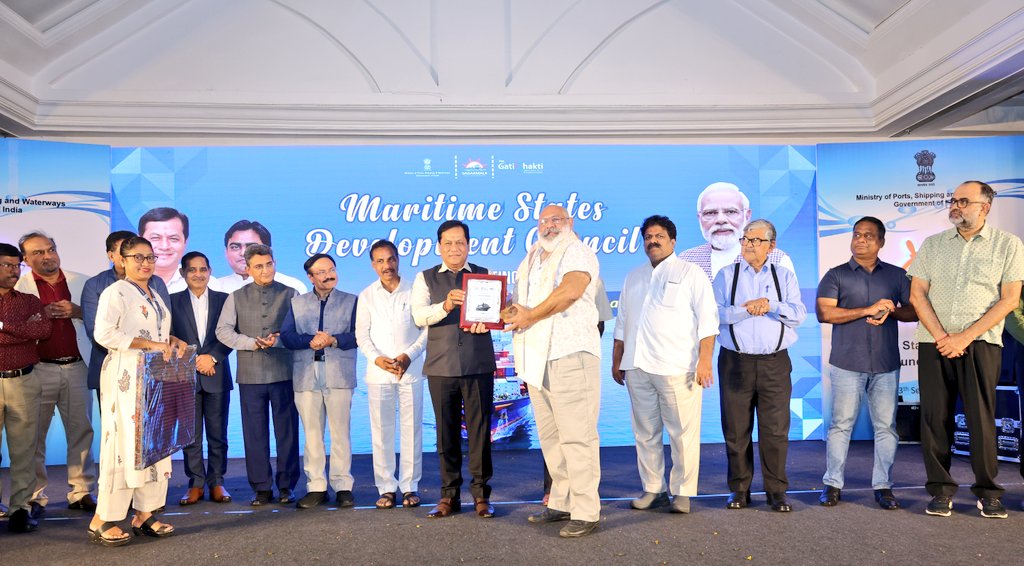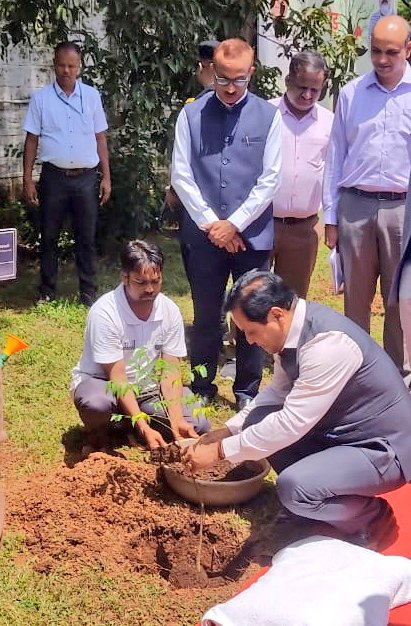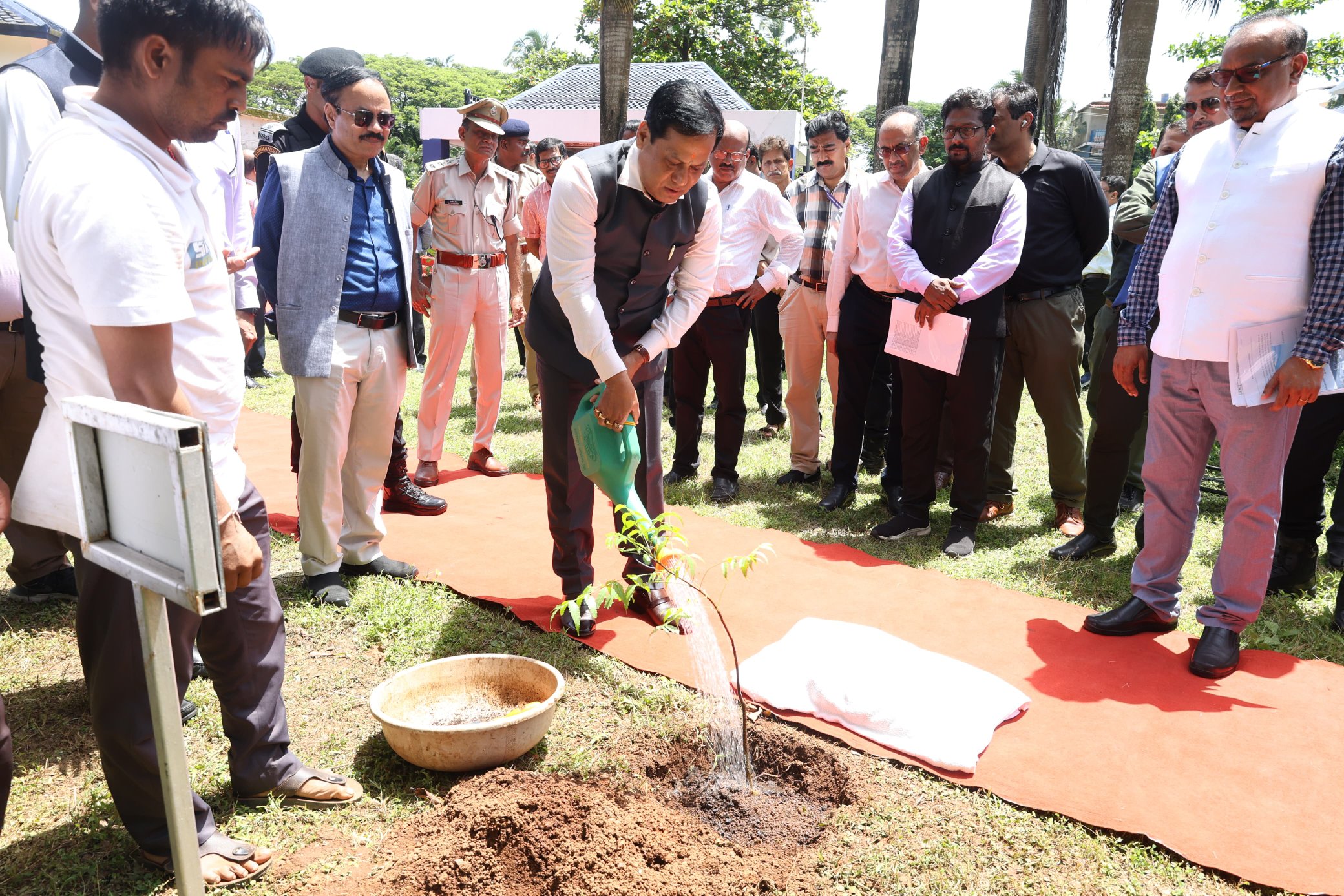
Sarbananda Sonowal to lead key discussions on Sagarmala, National Waterways, and Port Connectivity on 20th MSDC
GOA : The Union Minister of Port Shipping and Waterways, Shri Sarbananda Sonowal visited Mormugao Port to inspect the upcoming International Cruise Terminal. During his visit, he toured the construction site of the new terminal building and experienced the port’s state-of-the-art facilities with a yacht ride. As part of the ‘Ek Ped Maa Ke Naam’ initiative, the Minister also planted a sapling in the premises of the Mormugao Port.
Additionally, he briefed the media about the 20th Maritime State Development Council (MSDC) Meeting, which is set to take place in Goa.


He mentioned, “Under the visionary leadership of Prime Minister Modi, MoPSW is advancing ambitious projects worth ₹24,000 crore in Goa under Sagarmala to transform India’s maritime sector. The Maritime State Development Council will review the progress of these initiatives, including the Maritime India Vision 2030 and Amrit Kaal Vision 2047, as we align with our future targets. By bringing all stakeholders from coastal states together, MoPSW aims to create world-class infrastructure”.
“With the new Cruise Terminal at Mormugao Port, we are setting a benchmark for excellence, aiming to provide the kind of facilities that will help us meet our target of 1.5 million cruise tourists by 2030”, Shri Sonowal added.
It is to be noted Shri Sarbananda Sonowal, will preside over the 20th meeting of the Maritime State Development Council (MSDC), set to take place on 12th and 13th September 2024 in Goa. This crucial event will bring together Chief Ministers, Senior Ministers from Coastal States, and Administrators of Union Territories (UTs). Senior officials from all nine Coastal States, four UTs, and representatives from various Union Government Ministries and Departments will also be in attendance.
The 20th MSDC meeting will address several key maritime initiatives critical to India’s maritime future. A primary focus will be the review of the Sagarmala Programme, assessing its progress and outlining future plans to drive port-led development. Strategic discussions will also be held on the National Maritime Heritage Complex (NMHC) in Lothal, Gujarat, highlighting efforts to preserve and showcase India’s rich maritime history. The development of the country’s inland waterway network will be another major topic, with proposals aimed at enhancing cargo and passenger transport being evaluated.
Additionally, the meeting will deliberate on improving road and rail connectivity to ports, facilitating smoother movement of goods and passengers. Innovative state-led initiatives will also be showcased, including Kerala Maritime Board’s strategies to monetize dredging activities, Gujarat Maritime Board’s urban development projects linked to port activity, and Andhra Pradesh Maritime Board’s comprehensive master plan for maritime growth. Environmental sustainability will be a key theme, with a special focus on reducing pollution at Goa Port by curbing the handling of dirty cargo, aligning with broader efforts to promote cleaner, more sustainable port operations and enhance Goa’s appeal as a destination for both tourists and residents.
In addition to the above, discussions will be held on the compliance status of Major and Non-Major ports, strategic plans to boost the shipbuilding and ship repair industries, the review of Sagarankalan guidelines, and improvements to the port ranking system in India.
The MSDC, established in 1997, serves as the apex advisory body for the development of India’s maritime sector. Its primary aim is to promote the integrated growth of Major and Non-Major ports in close coordination with State governments. The Council, chaired by the Union Minister for Ports, Shipping, and Waterways, comprises Ministers responsible for ports from all Maritime States, Administrators of UTs, and key stakeholders, including representatives from the Navy, Coast Guard, and other agencies.
This pivotal gathering reaffirms the government’s commitment to advancing India’s maritime infrastructure, boosting port connectivity, and fostering sustainable growth for the maritime sector. The integration of Minor Ports with Major Ports and new proposals for roads, railways, and Inland Water Transport (IWT) will pave the way for a robust maritime economy.

